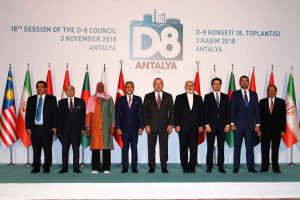Table of Contents
What is Rationality?
Rationality is the sense of appealing to logical reason. It has been a characteristic of Islamic theological thought since the earliest times. Rationality or reasoning has always been one of the principal currents of theological thought. Mutazilaism is one of the earliest philosophical traditions of rationalist Islam.
Rationality and Quran
Quranic verses maintain that the only characteristic that differentiates humans from animals is one of rationality. The Holy Quran repeatedly exhorts man to think. The Quran encourages people to ask questions, provided they do so with sincerity and the desire to understand the truth.
“For the worst of beasts in the sight of Allah are the deaf and the dumb — those who understand not” (8:22).
Faith and Rationality/Reasoning
Faith and reason are not contradictory but complementary. The Quran lays great emphasis on thinking and rationality. There are a number of verses in the Quran emphasizing the use of these faculties. Also, the Quran invites human beings, even opponents of the Prophet of Islam (PBUH), to observe nature, go around the world and see for themselves how nature functions. Also, seeking knowledge is so important in Islam that the Quran mentions the word ‘ilm’ and its derivatives 856 times. All this compells mankind to apply reasons and increase the understanding about various happenings around the universe.
How Rationality can be Implemented in Pakistan?
Rationality can be implemented in Pakistan through Majlis-e-Shoura (Parliament). Members of the parliament can foresee the problems of matters according to the teachings of the Quran and Sunnah. For that purpose, members of the parliament must be cognizant of the teachings of the Holy Quran, Sunnah, Arabic language, and the language of communication in the present era. Apart from these, parliamentarians must also have the necessary knowledge of the modern era and Islamic teachings. The selection of knowledgeable and well-informed persons is a necessary prerequisite for implementing the Rationality true to its essence.
Besides, in order to attain rationality (Ijtihad), some changes in the patterns of education are required as well. For instance, in Pakistan, Quranic verses are crammed without ensuring due understanding of their meanings and context. Such basic understandings need to be developed in people especially among the new generation.
One practical demonstration of rationality in Pakistan has been the notorious Hudood Ordinance that was promulgated by the late military ruler Zia-ul-Haq in 1979. The most notable and controversial among were Zina and Qazf Ordinances that made different categories of sexual offenses and assigned punishments as per Islamic injunctions.
Also, Article 189 of the 1973 Constitution is itself provides a basis for rationality or reasoning. Under this article, an decision of the apex court or other higher courts is considered as a precendent in legal matters. The lower courts are bound to follow the precedent set by the superior courts.
Human Errors in the Reasoning (Rationality)
- The failure to adopt a neutral and objective stance
- To base our beliefs on heresy and assumptions.
- Blind acceptance to traditions. To blindly follow the beliefs of others, particularly of one’s forefathers or those whom one assumes to be more knowledgeable, despite knowing that everyone is responsible for one’s own beliefs and must reflect and think for oneself.
- The error in reasoning is to be swayed by emotions, personal desires, whims and motives so that the search for the truth becomes obscure.
- Sickness of the heart, the corruption of the human self through delving in sinful acts without any retrospection and penance.
Would TLP and other religious organizations be controlled?
Yes, TLP and other religious organizations can effectively be controlled through negotiations. Listening to their legitimate demands and accepting them can offer a Peaceful solution to the problems.
The influence of TLP can be get away with by damaging the expectations of TLP and other banned outfits. Here the concept of Niccolo Machiavelli applies equall well. He absolutely divorced religion from politics and built a narrative that the state has its own rules of conduct to follow. Pakistan can go for the same by alienating the conduct of state from the religious biases.
Once the matter of TLP and other religious organizations becomes part of the discussion, the importance of the National Action Plan can’t be done away with. National Action Plan was incarcerated right after APS Disaster that happened in December 2014. Article 10 of the NAP deals with the registration and regulation of religious seminaries. Although, successive governments in Pakistan have worked on the terms of National Action yet the matter pertaining to the regulation of seminaries is still a far cry. To register the religious seminaries Directorate General of Religious Education (DGRE) was set up in 2019. Until now some 5000 Madrassahs have been registered so far according to the report available with Dawn. The regulation of these religious organizations includes opening up bank accounts for financial regulations, adoption of SNC in order to avoid discriminatory content, and introduction of vocational education. Such measures are hoped to reduce the elements of intolerance and hate speech from amongst the corridors of religious seminaries.
In order to control and tame the tentacles of TLP as well as other Religious organizations in the future, the government of Pakistan must maintain a central control in all these institutions. To do so government must appoint the staff in these institutions themselves and too purely on a merit basis.
To avoid the incidents of sectarian violence, all sects must be well-regarded and their sanctity must be maintained. No sect should disrespect another one.
Moreover, strong communication with the masses must be established to convey the will of the government. The recent episode of TLP seems less about the religious protests and more about the elements of intolerance and misinformation.
Reports reveal that some 4 policemen have been killed in recent clashes with Tehreek e Labaik protestors and another 263 were wounded. Also, in previous protests, TLP and its accomplices did widespread destruction by seriously damaging the public property and through disruption of law and order for days and weeks. Such mishaps can be avoided in the entirety once people get the basic knowledge of religion(Islam) as well as tolerance that Islam teaches. Those who’ve been killed and injured were never involved in an untoward activity pertaining to the charges of blasphemy. They’re killed unjustifiably. Providing the basic knowledge of Islam to people can be helpful in this regard.
Furthermore, some checks and balances must be maintained to keep an eye on the ongoing activities in religious seminaries.
Lastly, violence prevails in religious institutions of the country. This provokes intolerance and persecution. Strict measures to curb that physical, emotional, and social violence in the corridors of religious organizations can avoid future uprising of various nature.
Read Also: Corruption in Pakistan






